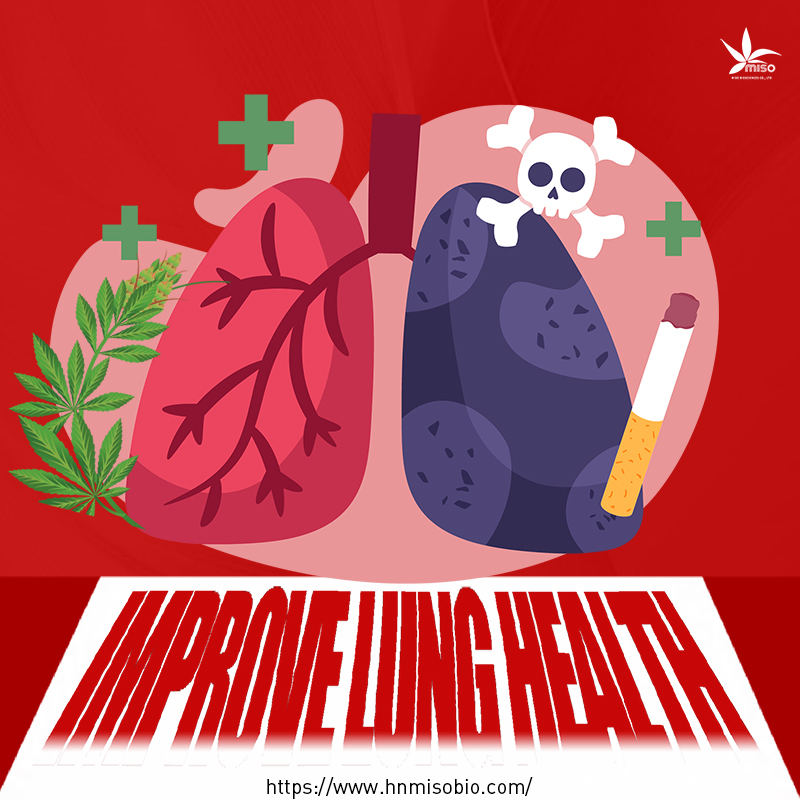Quitting smoking is one of the most challenging habits to break due to nicotine’s highly addictive nature. Many people struggle with withdrawal symptoms, cravings, and stress when trying to quit. While traditional methods like nicotine patches, gum, and prescription medications exist, some individuals are turning to cannabidiol (CBD) as a potential aid in smoking cessation.
But does CBD really work? Let’s explore the science, potential benefits, and how CBD can help those who want to quit smoking.
1.The Challenges of Quitting Smoking
Nicotine addiction affects both the body and mind, leading to:
- Physical dependence (withdrawal symptoms like irritability, headaches, and fatigue).
- Psychological cravings (habitual triggers like stress, social situations, or coffee breaks).
- Anxiety and mood swings, making relapse common.
Traditional quitting aids target nicotine replacement, but they don’t always address the underlying stress and behavioral patterns that make smoking hard to quit.
2. How CBD May Help with Smoking Cessation
CBD, a non-psychoactive compound from hemp, interacts with the endocannabinoid system (ECS), which regulates mood, stress, and addiction. Here’s how it might help smokers:
1. Reduces Nicotine Cravings
- A 2013 study published in Addictive Behaviors found that smokers who used CBD inhalers reduced cigarette consumption by 40%, even when they didn’t intend to quit.
- CBD may disrupt the brain’s reward response to nicotine, making cigarettes less appealing.

2. Eases Withdrawal Symptoms
- Withdrawal often causes anxiety, insomnia, and irritability.
- CBD’s calming effects on the nervous system may help manage these symptoms.
3. Helps with Stress & Anxiety (A Major Trigger for Smoking)
- Many smokers reach for a cigarette when stressed.
- CBD has been shown to lower cortisol levels (the stress hormone) and promote relaxation without addiction risks.
4. May Improve Lung Health
- Unlike smoking, CBD is typically consumed via oils, edibles, or vaporizers (without nicotine or tar).
- Some research suggests CBD has anti-inflammatory properties that could support lung recovery.

3. How to Use CBD for Quitting Smoking
If you’re considering CBD to help quit, here are some methods:
1. CBD Oil (Sublingual Drops)
- Fast absorption, helps with sudden cravings.
- Dosage: Start with 10-20mg per dose, adjust as needed.
2. CBD Vape (Nicotine-Free Alternative)
- Mimics the hand-to-mouth habit without nicotine.
- Caution: Avoid low-quality vape liquids; opt for broad-spectrum CBD.

3. CBD Gummies or Capsules
- Longer-lasting effects, good for managing daily stress.
4. CBD + Behavioral Therapy
- Combining CBD with mindfulness, exercise, or support groups may improve success rates.
4. Scientific Studies & Evidence
- 2018 Study (University College London): Smokers who took CBD had less desire for cigarettes after seeing smoking-related cues compared to placebo.
- 2021 Review (Frontiers in Pharmacology): CBD shows promise in reducing drug-seeking behaviors, including nicotine addiction.
However, more large-scale human trials are needed to confirm long-term effects.
Considerations
- Not a Magic Cure: CBD may help, but quitting still requires commitment.
- Drug Interactions: CBD can affect metabolism of some medications (consult a doctor if on prescriptions).
- Quality Matters: Choose third-party tested CBD with no THC (to avoid psychoactive effects).

5.Should You Try CBD to Quit Smoking?
While research is still developing, early studies suggest that CBD may help reduce cravings, ease withdrawal symptoms, and lower stress—key factors in quitting smoking. If you’re struggling with traditional methods, CBD could be a useful addition to your cessation plan.
Final Tip: Start with a low dose, monitor your response, and consider combining CBD with other healthy habits for the best results.